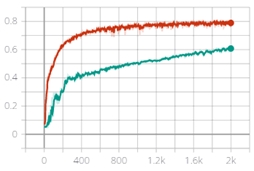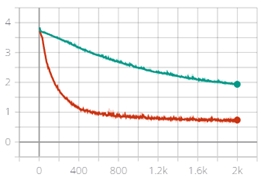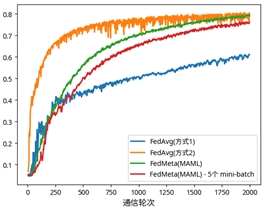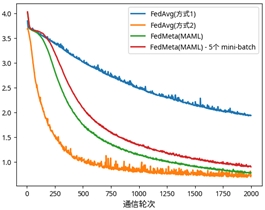Federated Meta-Learning with Fast Convergence and Efficient Communication
This repo contains unofficial pytorch implement of paper Federated Meta-Learning with Fast Convergence and Efficient Communication Due to lack of official codes, I am confused with such statements placed in the paper:
Page 6:
We filter inactive clients with fewer than k records, which is set to be 10, 20, 25 for FEMNIST, Shakespeare, and Sent140 respectively
It might ask me to drop the disqualified clients
Page 12:
Evaluation There are two common ways to define testing accuracy in the federated setting, namely accuracy with respect to all data points and ...
I evaluate the performance across all the test clients.
Page 12:
We use Adam [7] as the local optimizer for all approaches
It seems that it impossible to use Adam as optimizer of inner loop of meta-learning and I use gradient descend instead.
Generation of dataset
I included submodule LEFA for simplification, for more details, you can visit LEAF: A Benchmark for Federated Settings.
To split a client's data, you can go to dataset/<dataset_name> folder and run python split_support_query.py <p> to take it apart. p specify the fraction of support set.
Experiments
Both FedAvg and FedMeta support two schemes for Algorithm 1:
-
Sampling mini-batch(s) from support set and query set from both meta-train and meta-test clients when training or testing. It is same as what we do in meta-learning.
-
Use full data of support and query set.
You can use train_inner_step and test_inner_step option to specify the number of mini-batch(s)(default is 0 which means use full dataset).
For FEMNIST
FedMeta:
python run.py --algo=fedmeta \
--eval_on_test_every=1 \
--dataset=femnist_p_0.2 \
--lr=0.001 \
--num_epochs=1 \
--model=cnn \
--clients_per_round=4 \
--batch_size=10 \
--data_format=pkl \
--num_rounds=2000 \
--meta_algo=maml \
--outer_lr=0.0001 \
--result_prefix=./fedmeta_result \
--device=cuda:0 \
--save_every=1000 \
--meta_inner_step=5 \FedAvg:
--algo=fedavg_adv \
--eval_on_test_every=1 \
--dataset=femnist_p_0.2 \
--lr=1e-4 \
--num_epochs=1 \
--model=cnn \
--clients_per_round=4 \
--batch_size=10 \
--data_format=pkl \
--num_rounds=2000 \
--result_prefix=./fedmeta_result \
--device=cuda:6 \
--save_every=1000 \Note that it different from FedAvg because of clients are divided into meta-train and meta-test tasks.
I ran the FedAvg based on difference schemes(Red one is scheme 2, green one is scheme 1):
| Accuracy | Loss |
|---|---|
 |
 |
Contrast to FedAvg, FedMeta use train dataset as support set and test dataset as query set. The red one uses 5 mini-batches during inner loop and outer loop.
| Accuracy | Loss |
|---|---|
 |
 |
Note I can't achieve the same performance!!! I hope the author can share their implementation :)
TO-DO
- LSTM model(Current version cost too many GPU resource)
- I also implements the tensorflow version but the performance need to verify.